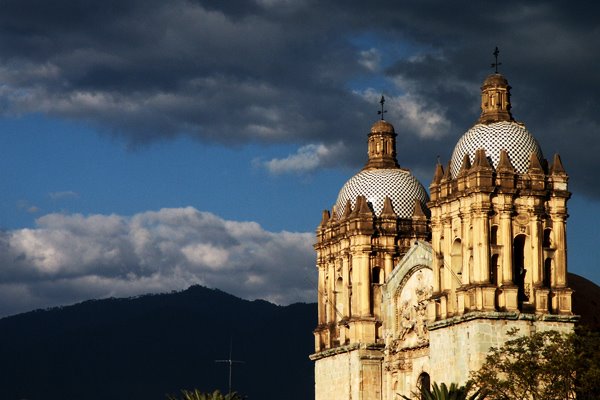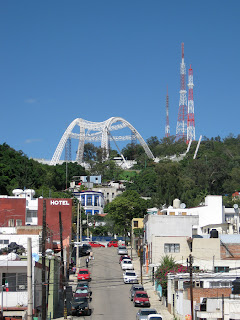It has been a bloody weekend with two political leaders assassinated. Only a day after the murder of Catarino Torres, leader of the Committee of Citizen Defense (Codeci), Heriberto Pazos Ortiz, leader and founder of the Unifi Movement of Lucha Triqui (MULT) and of Partido Unidad Popular (PUP) was killed Saturday.
I don't know enough to even begin to comment. It is a complex situation with many interweavings.
There have been blockades and marches all week even before these killings. There is a strange quiet in the city for the week leading into El Dia de los Muertos.
Here is a
link to a story about Torres and his life's work.
And
one about Pazos.
Some
background from Amnesty International.
The Independent Movement for Triqui Unity and Struggle (MULTI). supported by 700 Triqui people, established the autonomous Indigenous municipality of San Juan Copala on 1 January 2007.
In September 2010, armed members of two other Triqui Indigenous people's organizations, known as UBISORT and MULT, took over the autonomous municipality of San Juan Copala and occupied the town. All residents identified as belonging to MULTI fled the town and relocated to neighbouring areas such as Yosoyuxi.
San Juan Copala was under siege from November 2009 until September 2010, with armed groups surrounding the community and firing into the streets on a daily basis to intimidate local residents, many of whom had supported the MULTI. During the siege food, water and medical supplies were cut off.
On 27 April 2010, armed men belonging to UBISORT ambushed a humanitarian convoy near San Juan Copala and killed two human rights defenders. On 7 September, armed men attacked and wounded two indigenous women from San Juan Copala. No one has been brought to justice for these crimes.
For many years, armed groups, some believed to have links with local and state authorities, have harassed and killed Triqui Indigenous people because of their perceived affiliation with local Indigenous organizations. The state and federal authorities have taken insufficient action to dismantle the armed groups.
None of it bodes well. We have a new governor coming in in December, inheriting many problems, not of his own making. Oaxaca has suffered many travails this past decade. It is a long litany, from anarchy and economic collapse to swine flu, yet people have no choice but to go on.
The indigenous communities have many years of history, hence pride and perspective. In many cases they are resigned to a life of disenfranchisement, but are very politically aware and active. They are resilient and resistant to outside authorities who gave given them the shaft for so many years. And there is poverty and corruption.
Hard to say what will happen, but this past week may be a harbinger of things to come.






















































